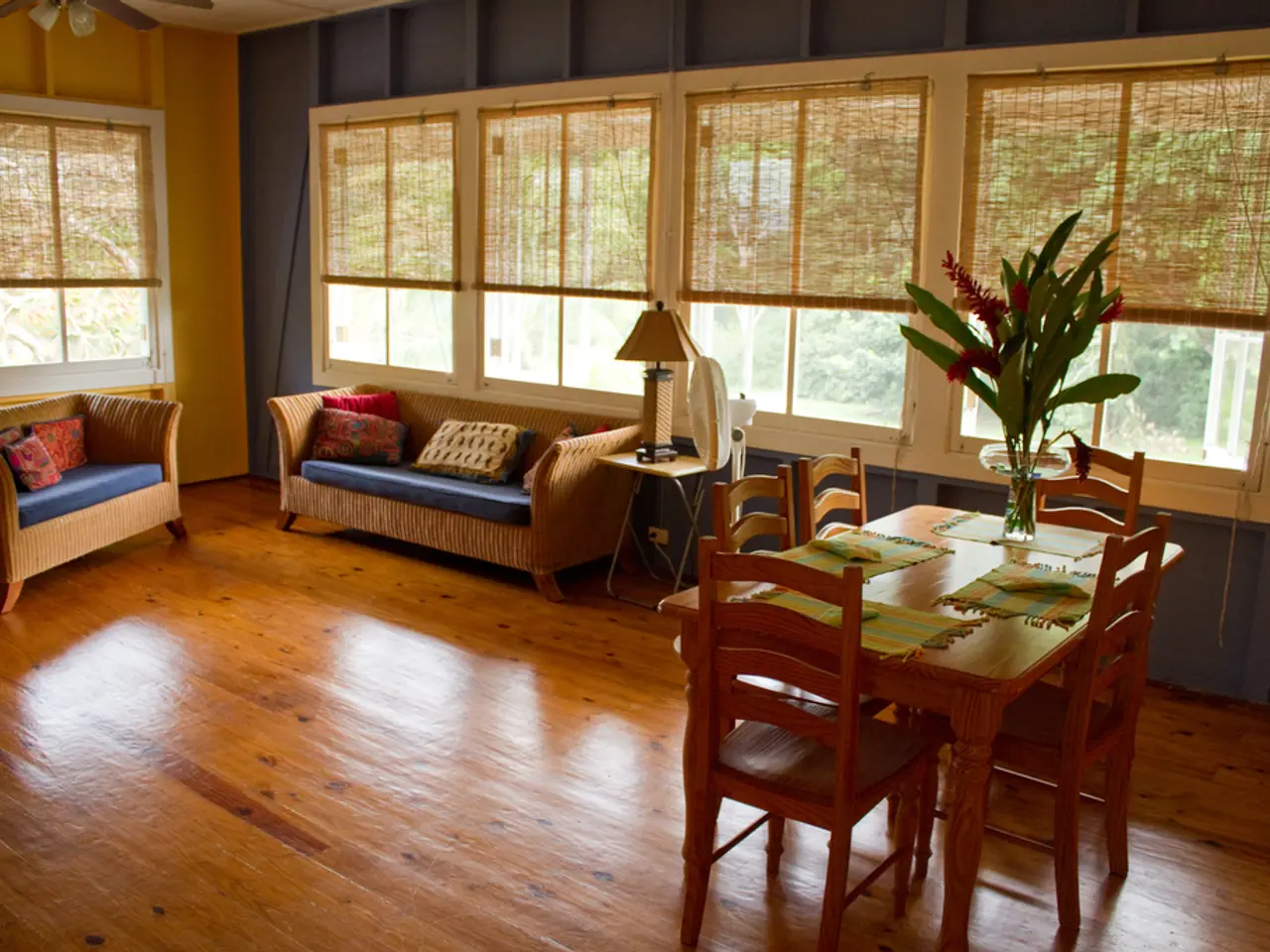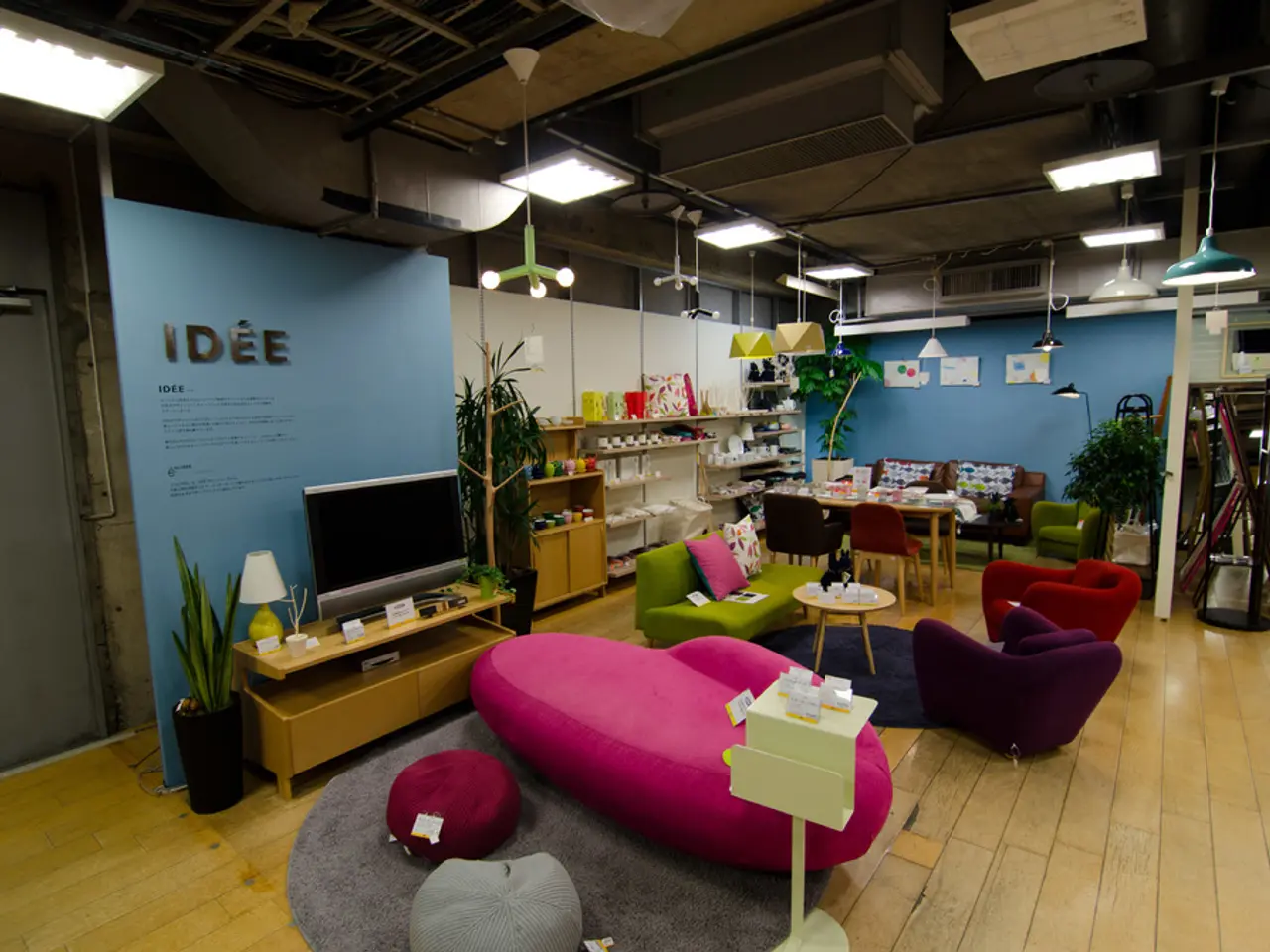Redesigning realms with the assistance of Artificial Intelligence
Artificial Intelligence (AI) is transforming the interior design industry, offering numerous benefits for both professional designers and homeowners. Here's a closer look at how AI is impacting the world of design.
## Benefits for Professional Designers
One of the key advantages of AI is speed and efficiency. Platforms such as Midjourney, Planner 5D, and Morpholio Board enable designers to create and refine concepts at unprecedented speeds. By inputting preferences, designers can generate layouts, palettes, and product suggestions quickly, a valuable asset for boutique firms and solo creatives.
AI also serves as an assistant rather than a replacement for human creativity. It automates tasks such as layout, style, and rendering processes, allowing designers to focus on the creative aspects of their work. AI tools like Foyr Neo and Planner 5D facilitate virtual staging and layout optimization, enhancing client interaction by providing real-time design suggestions and personalized spaces.
## Benefits for Homeowners
For homeowners, AI interior design tools make it easier to explore different design options without needing extensive design knowledge. Tools like Roomvo and Modsy allow users to visualize different paint colours, furniture arrangements, and decor options using augmented reality and 3D renderings.
AI also offers cost-effectiveness by reducing the need for physical prototypes and allowing for quick experimentation with different layouts, saving time and money. Homeowners can visualize changes before they are made, making the design process more efficient.
Moreover, AI can generate ideas based on individual preferences, providing homeowners with personalized design suggestions that match their aesthetic and functional needs.
## The Future of AI in Interior Design
The future of AI in interior design includes the use of virtual and augmented reality technologies for "walk-through" experiences before physical changes and smart home integration for considering technology and automation in daily life. Machine learning algorithms will become better at understanding individual preferences over time, creating increasingly personalized design recommendations.
AI may also predict how design choices will affect mood, productivity, or well-being based on psychological research and biometric data. Virtual staging has become popular in real estate, using AI to furnish empty properties with decor that appeals to potential buyers, demonstrating AI's ability to understand market psychology and buyer preferences.
In conclusion, AI tools in interior design offer a streamlined process for both professionals and homeowners by providing speed, efficiency, and personalized solutions. While AI enhances the design experience, it complements human creativity rather than replacing it. The most successful AI-assisted designers use AI as a starting point rather than an endpoint, layering personal insight and customization onto AI-generated foundations.
AI makes it possible for homeowners to easily experiment with different design options, such as utilizing tools like Roomvo or Modsy for augmented reality and 3D renderings of various paint colors, furniture arrangements, and decor ideas. Additionally, the future of AI in home-and-garden design could involve the integration of technology, like virtual and augmented reality for "walk-through" experiences, and artificial intelligence predicting the effects of design choices on mood, productivity, or well-being based on psychological research and biometric data.




